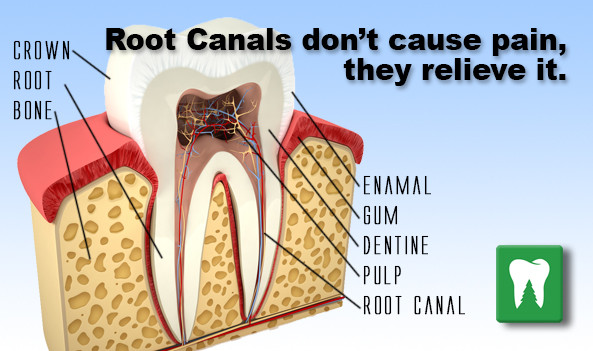Question and Answer

How painful is a root canal?
How painful is a Root Canal? According to the American Association of Endodontists, the majority of patients experience little to no discomfort during a root canal procedure. The tooth and surrounding region are numbed before to the surgery to eliminate the sense of discomfort. Expect some discomfort and sensitivity for a few days following the therapy. To alleviate any temporary discomfort, your endodontist will offer over-the-counter pain remedies like as aspirin or ibuprofen, or he will prescribe pain medication. Pain that does not go away after a few days or that returns months or even years after treatment is not normal and may indicate the presence of a new infection. Notify your dentist straight away if this occurs.
Are root canals painful? The operation is painless with local anesthetic. Needing a root canal, on the other hand, can be painful. While the prospect of needing a root canal may make you nervous, the procedure itself is a solution to a problem. Once your tooth has been fixed, take exceptional care of your smile by brushing and flossing everyday and seeing your dentist on a regular basis.
There is no such thing as root canal pain. At least that’s what most people think. They have a terrible reputation. “I’d rather have a root canal” is what you say when something you have to do is so bad that you would rather endure the torture of a root canal.
In actuality, having a root canal is no more traumatic than getting a filling. With today’s technology, most patients come away impressed with how fast and easy the procedure is. And, most significantly, how painless they are during and after the procedure.
The fear of having a root canal is most likely tied to the pain in the tooth that prompted it. The most common symptom of a root canal is a severe toothache.
Biting down on a severely infected or abscessed tooth will cause excruciating pain. So even the thought of a dentist touching the tooth, much alone drilling into it, is the last thing a patient wants. In actuality, infections are routinely treated with antibiotics prior to the root canal, and an anesthesia almost guarantees a painless surgery.
Despite their terrible reputations, our patients are frequently happy to have had root canal therapy since their tooth discomfort has gone away. Root canal therapy is quite effective, with a 95% success rate. A lot of root canal treated teeth may last a lifetime.
What is involved?
You’ll get a topical anesthetic (numbing gel) and our dentists go out of their way to make the administration of the anesthesia comfortable. After that, you won’t feel anything as he removes the infected pulp and nerves out of the tooth. Individual conditions may necessitate different root canal techniques, which our dentists will discuss with you in advance. Depending on factors such the tooth structure and infection severity, it may still be essential to make more than one visit. For a few days following the treatment, there may be sensitivity due to natural tissue inflammation, especially if there was a lot of discomfort and infection earlier. Almost always, over-the-counter drugs and prescription antibiotics will cure it in a day or two. The majority of people resume normal activities the next day.

